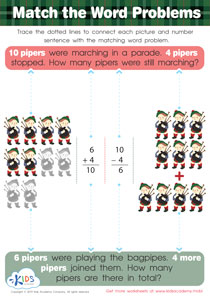Counting skills Normal Addition Worksheets for Ages 4-5
7 filtered results
-
From - To
Boost your child's counting skills with our engaging Normal Addition Worksheets designed for ages 4-5! These worksheets provide a fun and interactive way for young learners to practice basic addition through counting. Each worksheet features colorful illustrations and relatable activities that make learning enjoyable and effective. As children work through the exercises, they'll develop their number recognition and fundamental math skills, setting a solid foundation for future learning. Perfect for home or classroom use, these worksheets make counting practice entertaining. Download now and watch your little ones gain confidence in their math abilities while having fun!
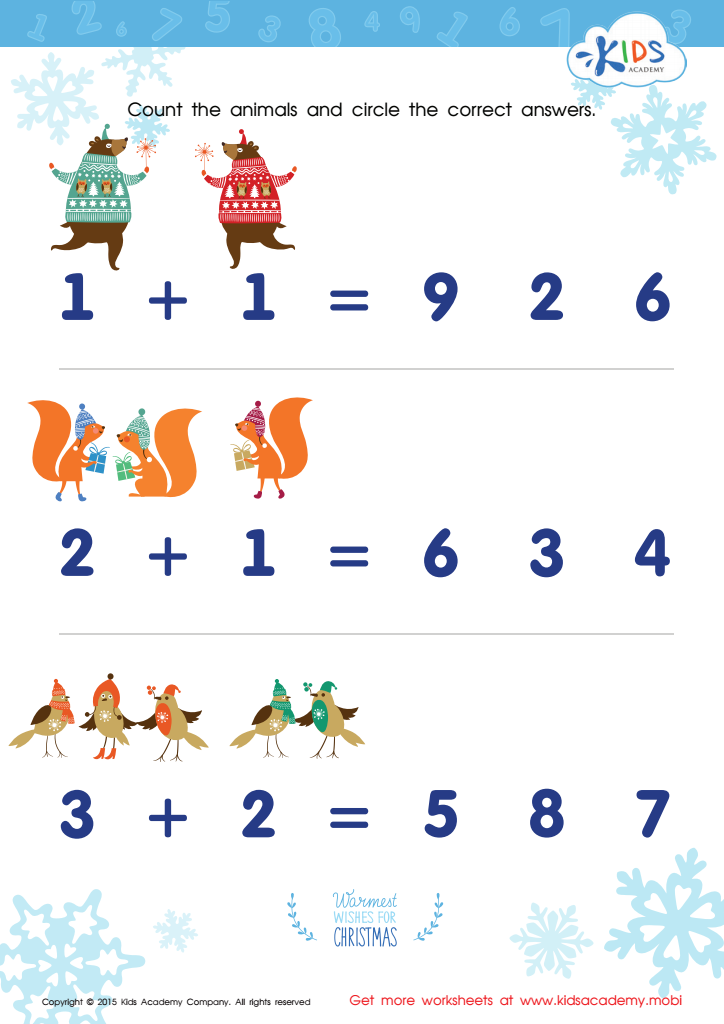

Count Funny Animals Worksheet


Adding Flower Petals Worksheet
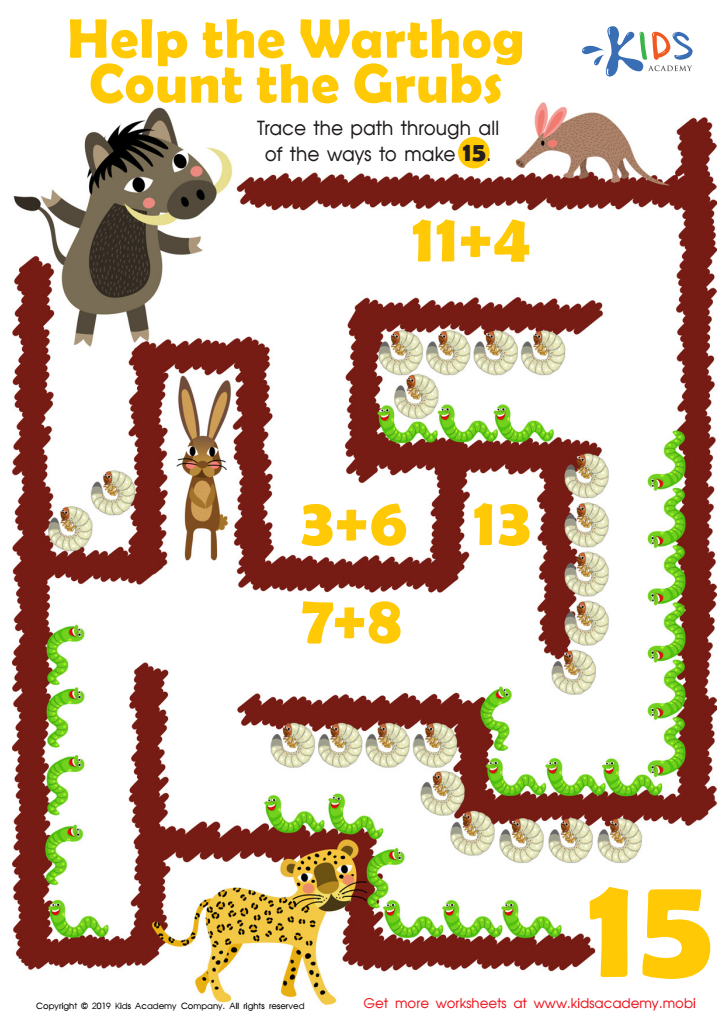

Help the Warthog Count the Grubs Worksheet
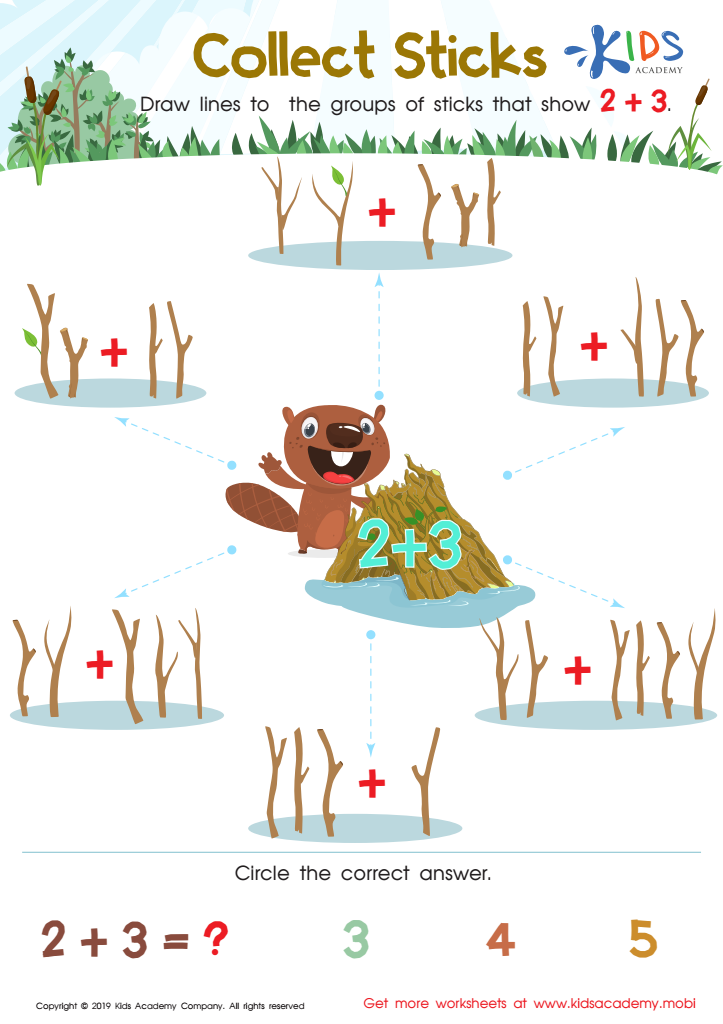

Collect Sticks Worksheet
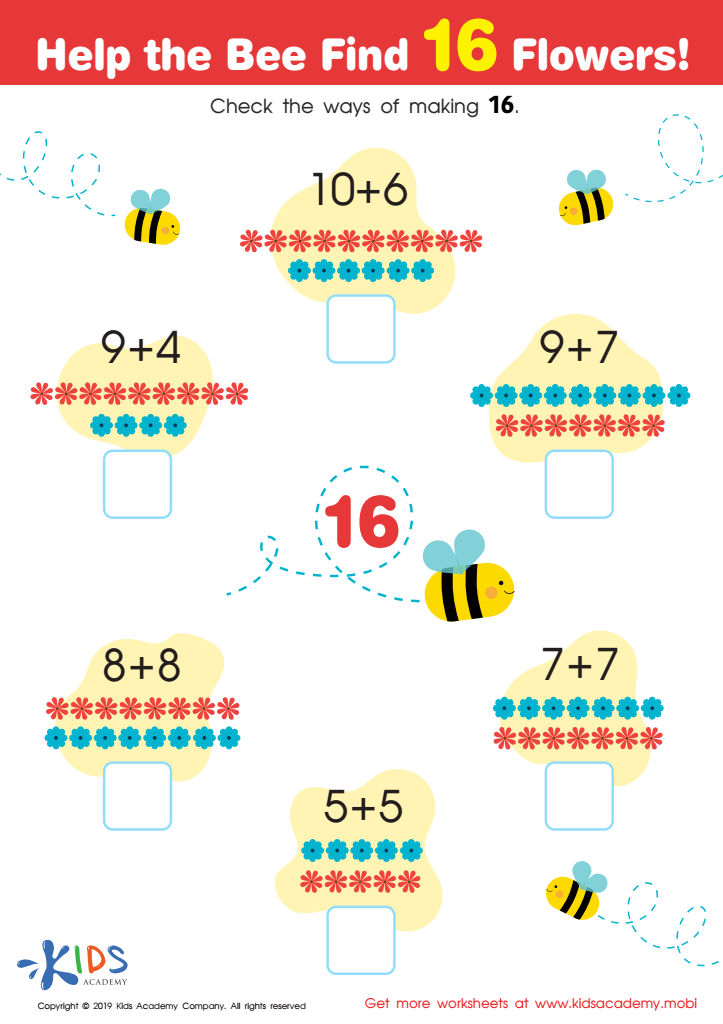

Help the Bee Find 16 Flowers Worksheet
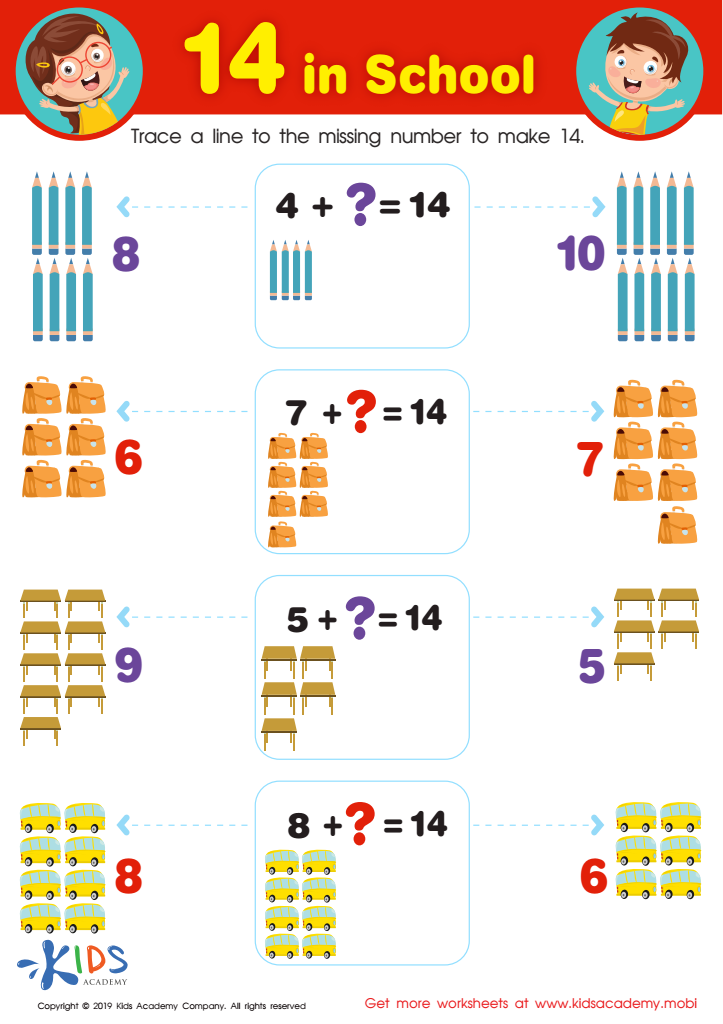

14 in School Worksheet
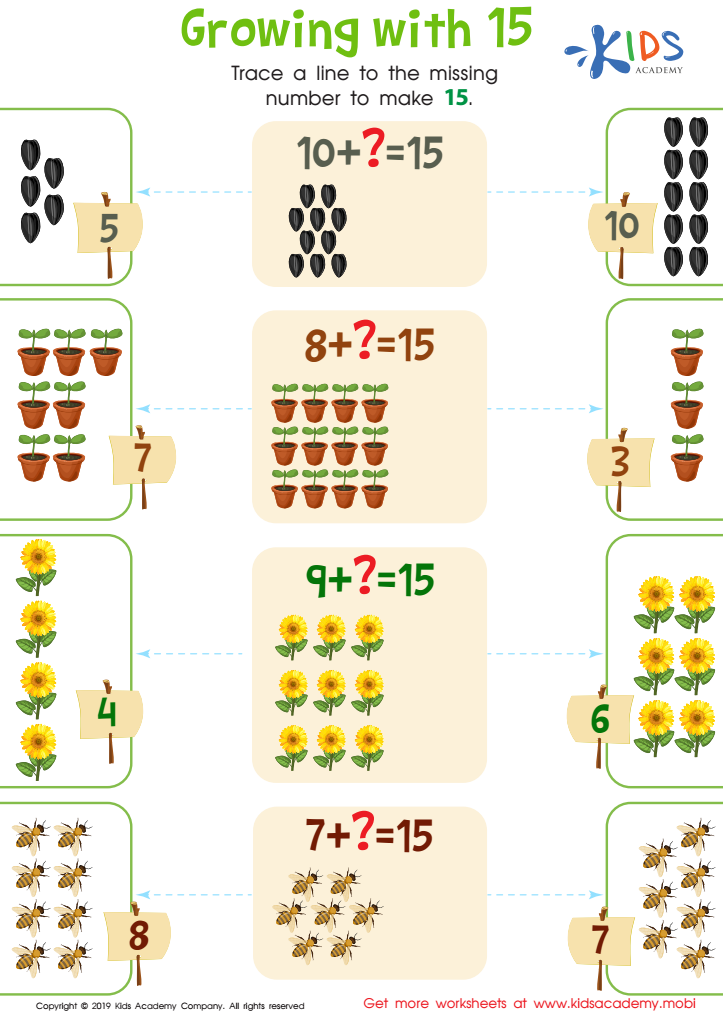

Growing with 15 Worksheet
Counting skills and basic addition are foundational for children's cognitive development, particularly for those aged 4-5. At this stage, children are not only learning to recognize numbers but also beginning to understand the importance of relationships between quantities. Mastery of counting and normal addition lays the groundwork for more advanced math concepts they will encounter in later years.
Parents and teachers should prioritize these skills because they enhance critical thinking and problem-solving abilities. When children engage in counting and simple addition, they learn to recognize patterns, make comparisons, and develop logical reasoning. These activities also boost confidence and independence, encouraging a positive attitude toward learning.
Moreover, early math skills correlate strongly with overall academic success. Research indicates that children with a strong foundation in math in preschool are more likely to excel in school later on. Counting games and activities can be easily integrated into daily routines, making learning fun and interactive.
Finally, fostering a strong mathematical base at this early stage supports essential life skills, like budgeting and time management, which will serve children well throughout their lives. For these reasons, parents and teachers should actively cultivate counting and addition skills in young learners.
 Assign to My Students
Assign to My Students











